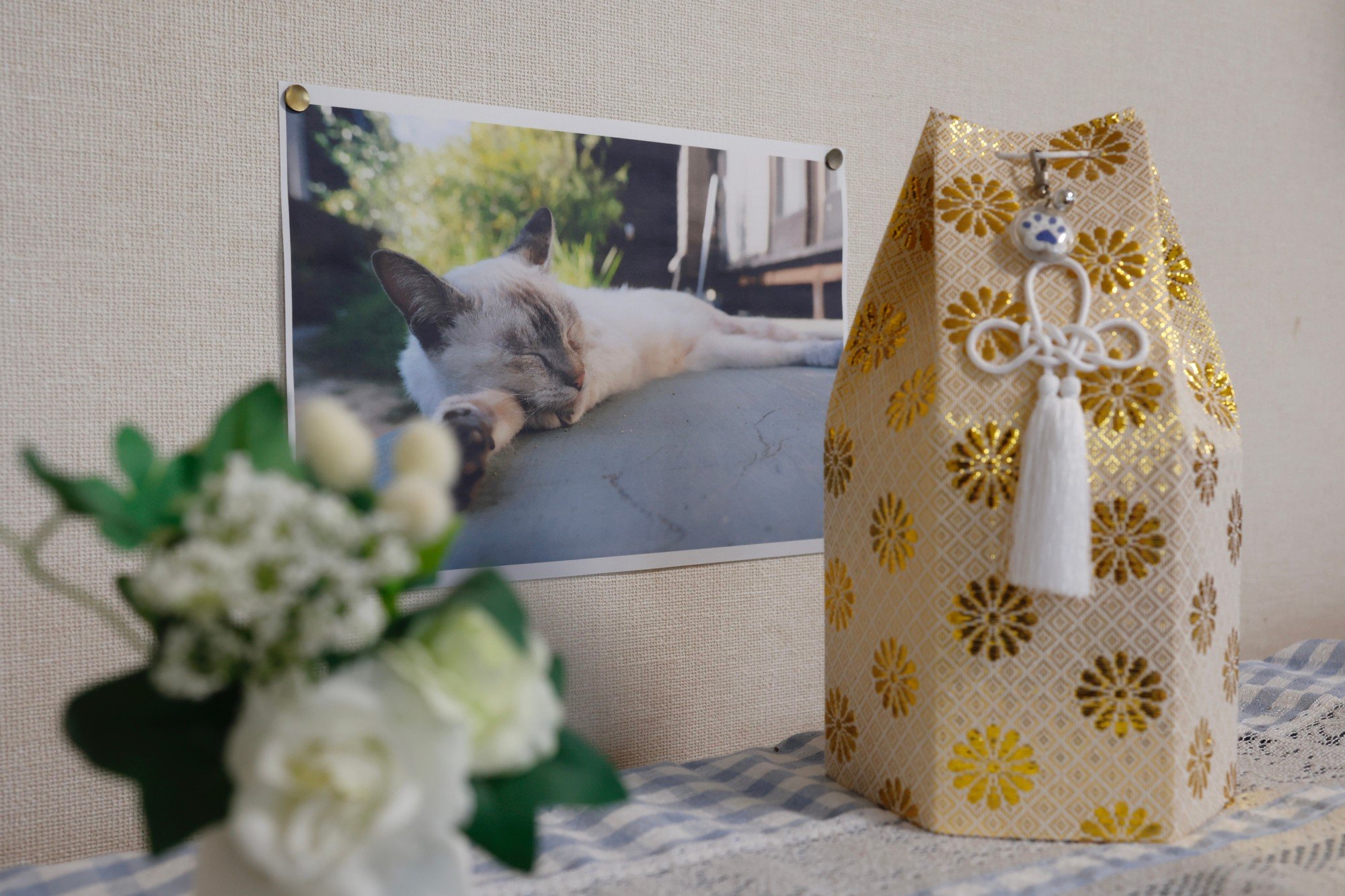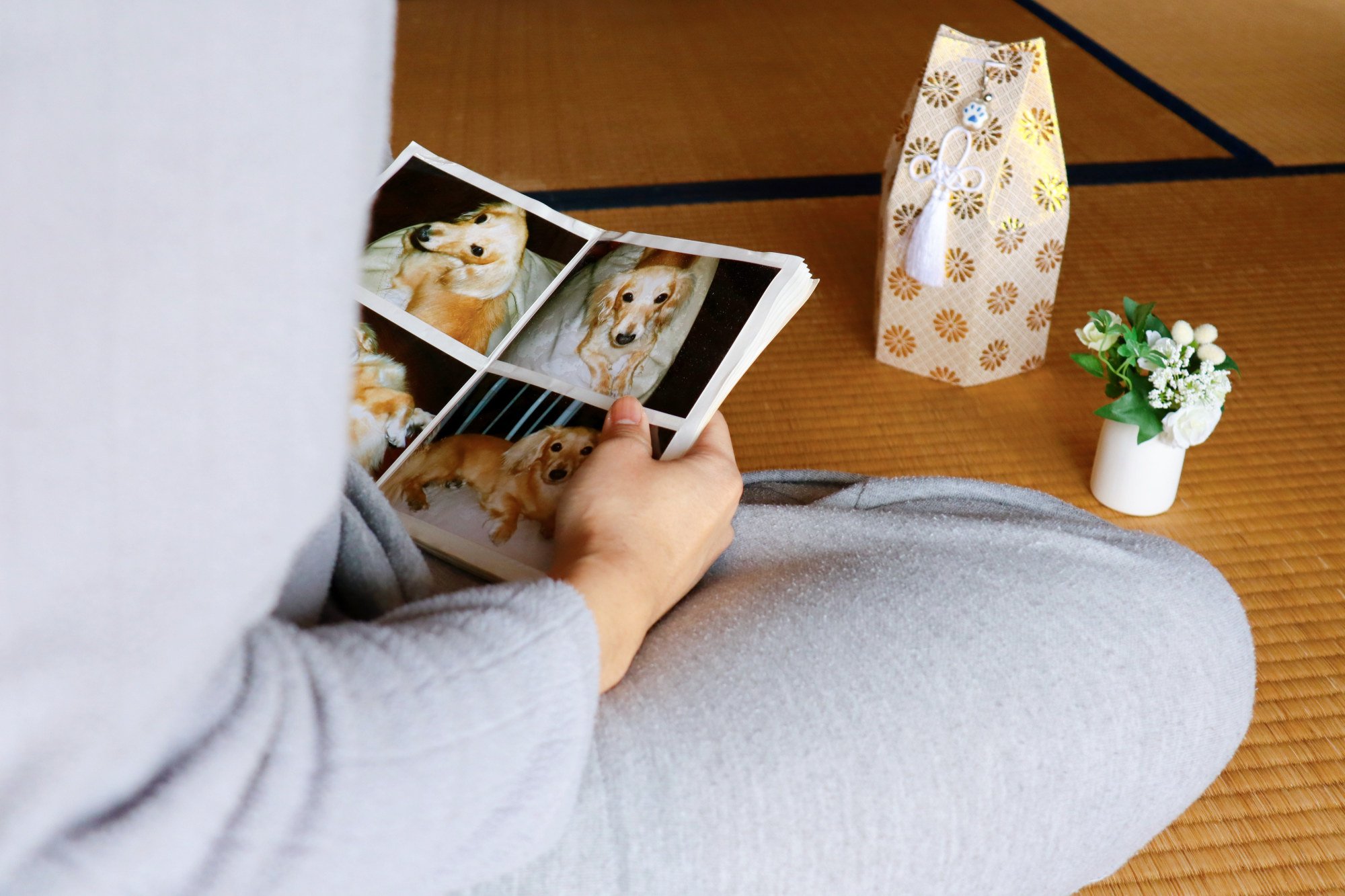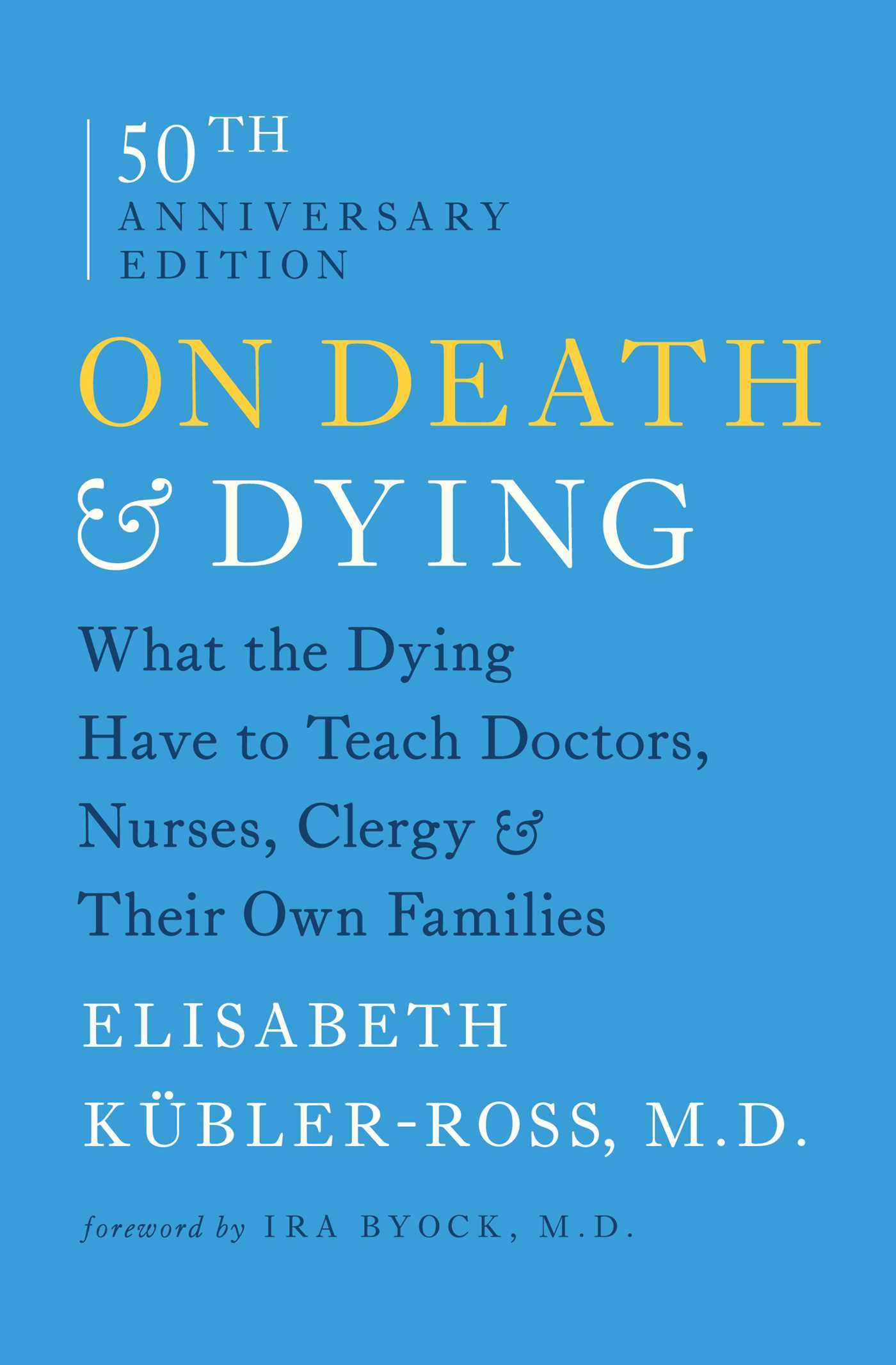
“I went to my mother’s house for dinner on Chinese New Year’s Eve. Ten minutes after we returned, he passed by. He was waiting for us. He took his last breath. “I was with him when that happened. I knew it was coming, but it was still a shock,” Powell says.

“Pets often provide us with more unconditional love than humans, so attachments can be very strong,” Powell says.
However, not everyone understands the depth of this bond. Even well-meaning friends can inadvertently say something that seems derogatory. Powell, a mental health professional, found solace in sharing her loss with caring friends. However, the mother’s response followed a more traditional Chinese approach.
“At Chinese funerals, when people shake hands,” Powell said. [bereaved] Family members will say, “Don’t be so sad, just adapt to the changes.” Although their intentions are kind, the grieving person may feel invalidated. ”

Her mother responded in this traditional way, advising her not to be sad and move on with her life.

“Many people don’t consider their pets to be part of the family, so they worry that losing them will lead to ridicule. This can lead to [the grieving person] They are especially vulnerable because they don’t have a support group of family and friends to talk to about their loss,” says Mooty.
She added that the bereavement process usually takes three to six months. If it’s much longer than that, she recommends seeking professional help.
In his 1969 book About death and dying, Swiss-American psychiatrist Elisabeth Kubler-Ross divided the grieving process into five stages: denial, anger, bargaining, depression, and acceptance. The model has since been updated to include her seven stages.

Mooty applies them to the loss of a pet:
-
Shock – “It’s a shock to the system. It’s even more of a shock if your pet dies suddenly or in an accident.”
-
Denial – “You may not be able to accept that your pet is gone and still leave their bed outside or leave their food in the cupboard.”
-
Negotiation – “You really want your pet back, and you run through scenarios in your head of what you can do to get it back.”
-
Guilt – “You question yourself if you did the right thing. Did you treat your pet well? Did you take your pet to the vet on time?”
-
Anger – “This can be directed at others or yourself, and you may blame yourself or others. You may feel terrible or have uncontrollable outbursts of anger.”
-
Depression – “After being angry, you may become very exhausted and fall into a depressed state, cutting yourself off from social activities and not wanting to talk to anyone.”
-
Acceptance – “Once you have gone through the full emotional process, you have accepted that your pet is gone.”

“Oftentimes, we think we shouldn’t feel a certain emotion and tend to suppress it. When we know it’s normal, we feel validated. I experienced emotions.”
It is not uncommon for well-meaning people to suggest that a grieving pet owner get another pet. However, Mooty advises against getting another pet right away.
“Owners tend to expect their pets to behave the same way they did before. It’s best to wait until they fully accept the loss before taking the next one,” she says.
Hong Kong NGO Mind Hong Kong’s free mental health check helps you understand emotions
Hong Kong NGO Mind Hong Kong’s free mental health check helps you understand emotions
Everyone accepts loss and processes their emotions differently. Pet memorials may be helpful. You can have a ritual, formal or informal, or simply take the time to talk to your loved ones about your pet.
It’s also important to be aware of other pets in the house. Powell said her other dog, Hugo, looked sad.
“He has no appetite, no motivation. He was disoriented when someone tried to take him away,” she says.

Some animals take time to process their grief, so bringing a new pet into your home can cause friction. However, animals are very adaptable and will usually respond positively if given some time to accept the loss.
There is an online memorial wall where grieving pet owners can remember their furry friends by uploading photos and heartfelt messages.
Her mother passed away in 2016, but it took a pandemic to ease her grief
Her mother passed away in 2016, but it took a pandemic to ease her grief
It’s “celebrating the happiness that a pet brought, rather than just focusing on the sadness after a pet passes away. It can help with the grieving process,” says Louisa Ho, deputy executive director of the SPCA. Masu.
Art Jamming’s bereavement workshops also allow people to remember their pets and process various emotions of grief.
“The sadness when a pet dies is the same as when a family member dies. In traditional Chinese culture, there has been a lot of silence about death. As society changes, people’s needs also change. We recognize that things are changing and people’s acceptance is changing,” Ho said.


